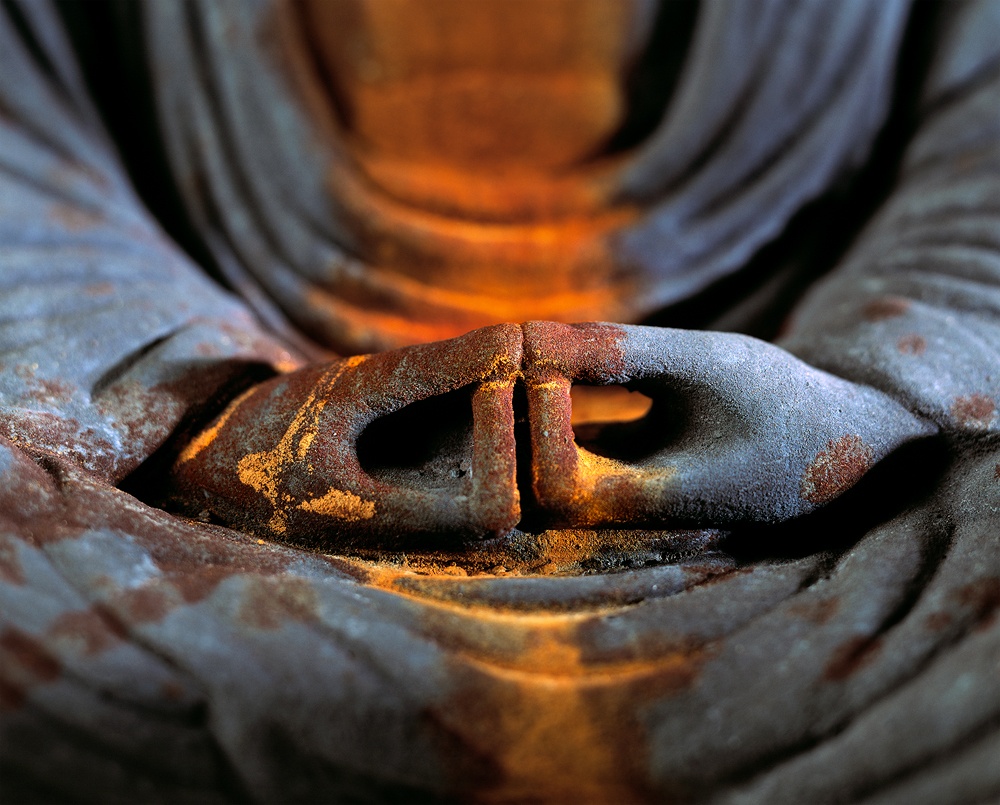
Advice on and Solution of Social and Political Problems Given by the Buddha
อำนวย ยัสโยธา
Amnuay Yussayotha
บทคัดย่อ
งานวิจัยนี้มีวัตถุประสงค์เพื่อศึกษา การแนะนำ และ วิธีแก้ไขปัญหา ทางสังคมและการเมืองของพระพุทธเจ้า จากวัตถุประสงค์ดังกล่าว สามารถนำมาแตกเป็นโจทย์คำถามวิจัย ๔ ข้อ ได้แก่ (๑) พระพุทธเจ้ามี การแนะนำ เกี่ยวกับปัญหาทางสังคมอย่างไร ? (๒) พระพุทธเจ้ามี วิธีแก้ไขปัญหาทางสังคมอย่างไร ? (๓) พระพุทธเจ้ามี การแนะนำ เกี่ยวกับปัญหาทางการเมืองอย่างไร ? (๔) พระพุทธเจ้ามี วิธีแก้ไขปัญหาทางการเมืองอย่างไร?
ผลจากการศึกษาพบว่า
(1) ในส่วนของ การแนะนำ เกี่ยวกับปัญหาทางสังคม : ทรงถือหลักว่าต้องทำตนให้เป็นคนดีก่อน แล้วทำให้สังคมดีตามไปด้วย โดยเน้นที่ ตัวคน มากกว่า ระบบ ทรงเห็นว่าถ้าคนดี แม้ระบบจะบกพร่องอยู่บ้าง คนจะไม่หยิบฉวยช่องโหว่นั้นมาก่อกรรมทำชั่ว
(2) ในส่วนของ วิธีแก้ไขปัญหา ทางสังคม : ทรงแก้ไปตามสถานการณ์ แต่ตัวผู้แก้จะต้องมีบารมีเป็นต้นทุน ซึ่งพระองค์ทรงสะสม “ทศบารมี” ไว้ดีแล้ว ๑๐ ประการ คือ ทานบารมี ศีลบารมี เนกขัมมะบารมี ปัญญาบารมี วิริยะบารมี ขันติบารมี สัจจะบารมี อธิษฐานบารมี เมตตาบารมี และ อุเบกขาบารมี และที่สำคัญคือ หลังจากแก้ปัญหาแล้วต้องเปลี่ยนศัตรูให้กลับมาเป็นมิตร แล้วให้การอบรมสั่งสอนเพื่อที่จะให้ผู้นั้นกลับเนื้อกลับตัวเป็นคนดีสืบไป
(3) ในส่วนของ การแนะนำ เกี่ยวกับปัญหาทางการเมือง : ทรงประดิษฐ์คำสอนให้เหมาะกับการเมือง ๒ ระบอบ คือระบอบราชาธิปไตยกับระบอบสามัคคีธรรม ในส่วนของ ระบอบราชาธิปไตย ทรงเน้นการทำตัวผู้ปกครองให้เป็นแบบอย่างที่ดีก่อน แล้วทำให้ผู้ที่อยู่ใต้ปกครองเป็นคนดีตามไปด้วย ในส่วนของ ระบอบสามัคคีธรรม ทรงให้ความสำคัญกับหลักแห่งสามัคคีธรรม แต่ทั้งสองระบอบนี้ จะต้องให้ความสำคัญกับการแก้ปัญหาปากท้องควบคู่กันไปด้วย อย่างไรก็ตาม พระองค์มิได้ให้ความสำคัญกับ ระบอบการปกครอง เท่ากับ การใช้อำนาจการปกครอง คือ ทรงเห็นว่าระบอบใดก็ได้ ถ้าใช้อำนาจแบบธรรมาธิปไตย ถือว่าเป็นการปกครองที่ดี แต่ถ้าใช้อำนาจแบบ อธรรมาธิปไตย ถือว่าเป็นการปกครองที่เลว
(4) ในส่วนของ วิธีแก้ไขปัญหา ทางการเมือง : ทรงแก้ไปตามสถานการณ์ โดยถือหลักคือ วางพระองค์เป็นกลาง เที่ยงธรรม บริสุทธิ์ใจ และถือประโยชน์หมู่ชนเป็นที่ตั้ง และที่สำคัญยิ่งกว่านั้นคือ ทรงระวังมิให้กระทำการใดเกิน ฐานะและ บทบาท ของความเป็นพระศาสดา
แต่ถ้าจะสรุปโดยรวมพบว่า ทรงมี การแนะนำ และมี วิธีแก้ไขปัญหา ทางสังคมและการเมืองโดยใช้ “ธรรมาวุธ” (อาวุธคือธรรม) จะไม่ใช้ “ศาสตราวุธ” (อาวุธคือความรุนแรง) เพราะเห็นว่าไม่สามารถแก้ปัญหาได้จริง
Abstract
This study deals with advice and solution of social and political problems given by the Buddha, which can be classified into four main research questions: (1) how Buddha gave advice on social problems; (2) how Buddha made solution to social problems; (3) how Buddha gave advice on political problems; and (4) how Buddha made solution to political problems. The results of the study reveal the following :
(1) Regarding advice on social problems, Buddha advised people to become morally virtuous first so that the society becomes good automatically. The advise given emphasizes individual rather than a system. Buddha is of the opinion that if a person is virtuous, although there might be some loophole for violating the moral code, he/she would not use that loophole in committing immoral act for his/he personal gain.
(2) Regarding solution of social problems, Buddha solved them in accordance with the prevailing situation. The solver must possess the Parami (perfections) as an asset for solving the problems. Buddha has already accrued noble 10 Paramis such as Dana (giving, charity, generosity, liberality); Sila (morality, good conduct), Nekkhamma (renunciation), Panna (wisdom, insight, understanding), Viriya (energy, effort, endeavor), Khanti (forbearance, tolerance, endurance), Sacca (truthfulness), Adhitthana (resolution, self-determination), Metta (loving-kindness, friendliness) and Upekkha (equanimity, indifference to praise and blame in the performance of duty). Most importantly, one has to turn enemy to become friend after solving the problems so that the person be trained to be virtuous.
(3) Regarding advice on political problems, Buddha improvised the teachings suitable with two political systems: aristocracy and Samakkhidham (community spirit). Buddha advised aristocrat rulers to act as a model so that the ruled followed the model. As for Samakkhidham system, Buddha emphasized the principle of community spirit. Along with solving the government aspect of the system, the economic aspect should also be materialized side by side. Buddha prioritized the use of authority more than the governing system, seeing that any system would be workable if “Dhammacracy” was utilized. Dhammacracy was seen as good governing system whereas “non-Dhammacracy” was not.
(4) Regarding solution of political problems, Buddha solved them in accordance with the prevailing situation utilizing impartiality, equity, honesty and public good as the basis. Moreover, Buddha was cautious not to act beyond his role and status as exalted teacher.
Overall, Buddha gave advice and solved the social and political conflicts using “Dhammawuth” (weapon of Dhamma), not “Sastrawuth” (weapon of violence) because the latter was not able to solve the problems.